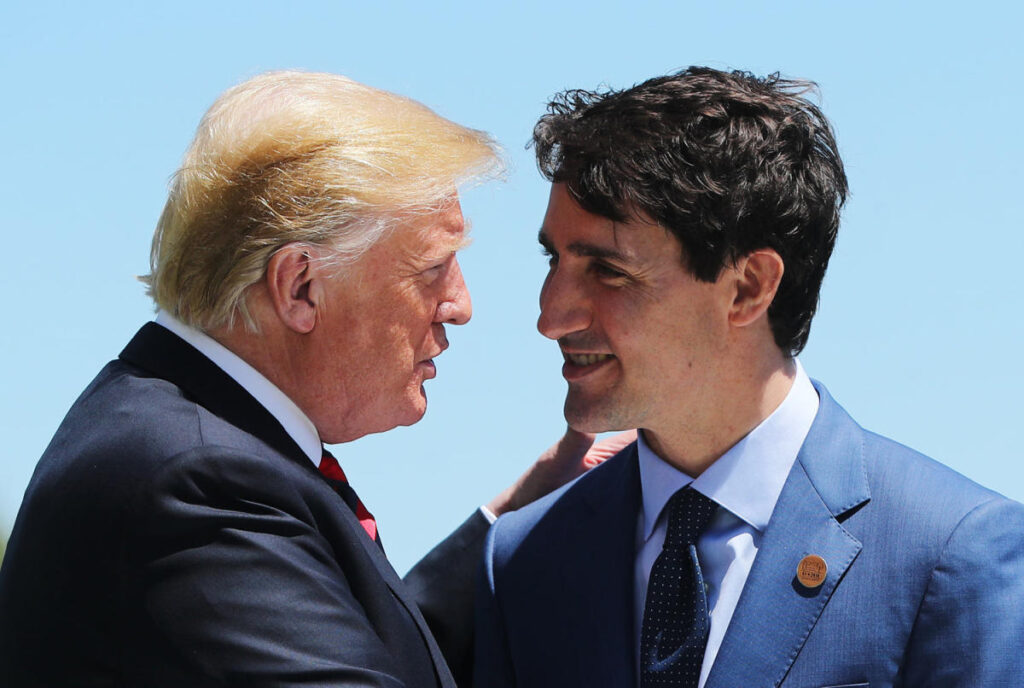In a whimsical exchange reflecting the tumultuous relationship between the United States and Canada, President-elect Donald Trump recently referred to Prime Minister Justin Trudeau as the “governor” of the “Great State of Canada” on his Truth Social account. This playful jab came after Trump’s suggestions of imposing tariffs on Canada, which he argued would be beneficial to the U.S. economy. In his post, Trump expressed his eagerness to further discuss tariffs and trade with Trudeau, suggesting that these discussions would yield “spectacular” results. Trump’s comment drew a laugh from his spokesman, Steven Cheung, symbolizing the light-hearted, yet contentious, nature of the dialogue between the two leaders.
During a dinner meeting at Mar-a-Lago, Trump reportedly joked about the possibility of Canada becoming the 51st state, a notion he has entertained publicly in recent months. He proposed this idea not only to Trudeau but also during an interview on NBC’s “Meet the Press.” There he noted that the trade deficit with Canada could be seen as a form of subsidy, arguing that the U.S. effectively subsidizes Canada to the tune of over $100 billion annually. He suggested that if the U.S. was to continue such financial support, then perhaps Canada should consider statehood. This perspective highlights Trump’s unconventional approach to international relations and trade, often framed in a manner that prioritizes American economic interests.
In response to Trump’s rhetoric, Prime Minister Trudeau reaffirmed Canada’s stance on trade, indicating that the nation would respond to any unfair tariffs, a strategy Canada employed successfully eight years prior. Trudeau characterized his recent meeting with Trump as “productive,” suggesting that vital topics such as fentanyl issues, illegal immigration, and trade were discussed. Nevertheless, Trudeau’s response showcased the ongoing challenge in navigating discussions around tariffs, emphasizing Canada’s commitment to fair trade principles.
The humorous interactions between the two leaders have not gone unnoticed within the political landscape. Ontario Premier Doug Ford commented on Trump’s joke regarding Canada’s potential statehood, giving a nod to the historical grievances from the War of 1812 as a humorous backdrop. Ford’s remarks captured the lighter side of the political banter, although some underlying tension regarding trade remains palpable. Such comments not only reflect their personalities but also add a layer of complexity to diplomatic relations with the prospect of humor often mingling with serious economic discussions.
Furthermore, the interplay of Trump’s comments and the reactions from Canadian leaders is indicative of broader sentiments concerning U.S.-Canada relations. Senator Bernie Sanders joined in the commentary by jesting on social media about the prospect of adopting the Canadian health care system should Canada join the U.S., thus intertwining domestic and international policy discussions in a humorous light. This kind of interplay not only entertains but also serves to highlight the stark differences in policy ideologies between the two nations, particularly regarding health care, trade, and social welfare.
In essence, these exchanges between Trump and Trudeau illuminate a complex web of diplomatic relations marked by both camaraderie and contention. Through humor and lighthearted remarks, both leaders navigate the serious issues at stake, such as tariffs and trade, while also engaging their respective audiences. As the political landscape evolves, the relationship between the U.S. and Canada will continue to foster discussions that transcend beyond trade, touching on historical legacies, domestic policies, and national identities, ultimately shaping the future of cross-border relations.

